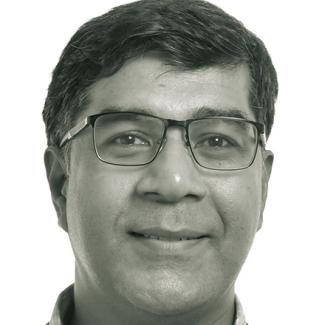Comment
No way to treat a legend
By Ridwanul Hoque
On 2 March, the Bangladesh Bank, the country’s central bank and top financial regulator, removed Professor Muhammad Yunus from his position as the managing director of the Grameen Bank. This is the bank he founded and with which he won the Nobel Peace Prize in 2006. The government holds a 25 % stake in the bank.
The central bank did not even notify Yunus before acting. It seems ironic that, only two days later, the central bank did inform some trade union leaders whose positions it planned to terminate. The nation’s only Nobel laureate was apparently not deemed worth the same procedural justice.
The government argues its step was inevitable because Yunus exceeded a legal age limit. The retirement age for Grameen staff is 60. The media, however, widely report that this was a personal vendetta of Prime Minister Sheikh Hasina. Speculations abound about what may have aroused her anger, but most media focus on Yunus’ role during the 2007/08 military-backed emergency regime.
This regime promised to fight corruption and tried to purge politics from the influence of both main parties’ leaders, Sheikh Hasina of the Awami League and Begum Khaleda Zia of the Bangladesh National Party (BNP). At the time, Yunus publicly considered going into politics, which Hasina probably felt was another blow to her future. Today, the BNP is only a shadow of its former self. Hasina’s Awami League, however, won the parliamentary elections at the end of 2008 in a landslide.
Yunus won global fame by giving masses of poor women access to microcredit, helping them to better their lives themselves.He was fired in a humiliating way. Before mentioning age, the government tried to link him to old issues of financial misconduct, based on a documentary film from Norway. The Norwegian government, however, was fast to insist that it was pleased with Yunus and did not find him at fault.
Hasina also accused Yunus of usury, pointing to high interest rates. That is of course a valid point for debate. Microfinance institutions all over the world, however, charge high interest rates, arguing that the administration of microcredits is labour-intensive and thus costly.
Yunus challenged the lawfulness of the Bangladesh Bank’s decision on a number of strong grounds before the Supreme Court. He argued
– that the government should have heard him before acting,
– that he crossed the age limit in 1999, but the central bank acquiesced in his appointment by not raising any objection so far, and
– that he continued as the Grameen Bank’s chief lawfully because, under the relevant rules, the bank’s board of directors may retain the chief even after the general age limit of 60 applicable for other employees.
Yunus’ lawyer said that it does not suit democratic standards that a government would remove someone of Yunus’ standing on flimsy grounds without giving him notice. Bangladesh’s Constitution stresses “human dignity and worth”.
The Supreme Court took the same stance as the government, however. After a three-day hearing it summarily rejected Younus’ petition on 8 March. The Supreme Court is free to make that decision, of course, but there appears to be no strong reason for doing so. Two judges briefly stated that the government’s action was lawful – and that was it.
Once more, speculations abound about why the judges acted that way. A rather popular suggestion is that both were hoping to be promoted. That may or may not be true, but a well-argued judgment would probably not have invited such speculations. Yunus has since appealed to the Supreme Court’s Appellate Division, the highest tier of the country’s judiciary. His hearing was due on 15 March, but it was postponed.
Yunus has the backing of the Grameen Bank’s board members, with the exception of those who represent the government. He is adored by the bank’s eight million borrowers and its staff. He also enjoys endorsement from many international agencies. He deserves better treatment. Back in 1997, he even had the backing of Sheikh Hasina, who was serving as prime minister at the time. Back then, she appreciated his “outstanding work” towards improving the “capacity” of poor people.








